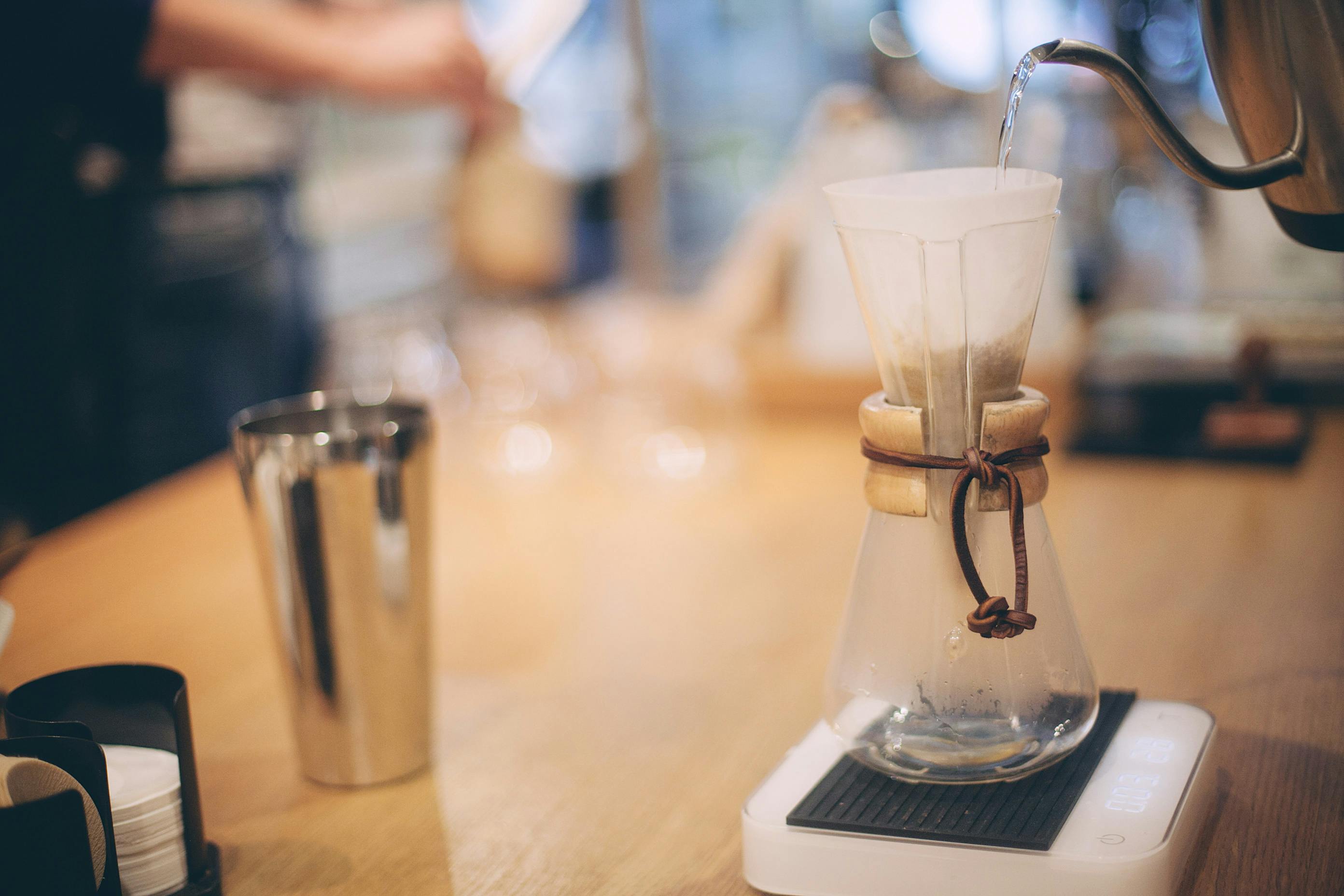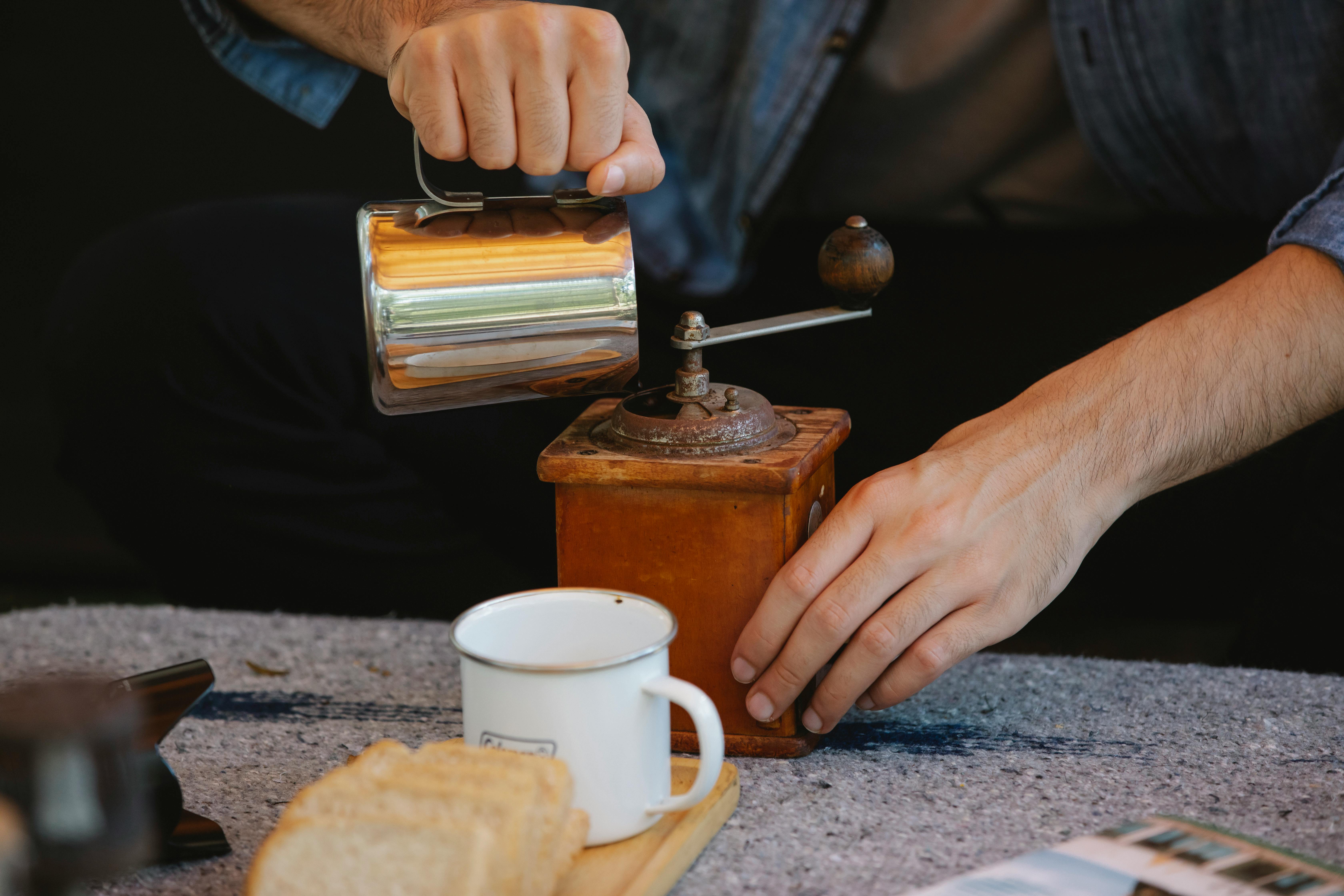How Does a Coffee Maker Work?
A coffee maker is a device that uses hot water to brew a beverage known as coffee. It can be used for both espresso and regular coffee, depending on the type of machine you have. The process of making coffee involves heating water and then forcing it through ground coffee beans. The resulting liquid is then strained and collected in a pot or carafe. The process usually takes between 4-10 minutes, depending on the type of machine and how strong the desired flavor is.Coffee makers are usually composed of several components, including a water reservoir, heating element, filter holder, filter basket and carafe or pot. The water reservoir is filled with cold water and placed on top of the machine. This is then heated by the heating element until it reaches a certain temperature, which is usually between 195 – 205 degrees Fahrenheit (91 – 96 degrees Celsius). Once this temperature is reached, the heated water passes through the filter holder containing ground coffee beans. This causes the oils and flavors from the beans to be extracted into the hot water.The resulting mixture then passes through a filter basket into the carafe or pot below. This filter basket is used to strain any grounds that may have been released during the brewing process. The finished product can then be poured into cups for drinking or left in the carafe to stay warm until it’s ready to be served.In addition to manual machines that require you to fill them up with water yourself, there are also automatic machines that can be programmed to start brewing at specific times of day or night. These machines often come with various features such as adjustable temperature settings, timers and auto shut-off features for added convenience.Overall, making coffee with a coffee maker requires very little effort on your part and can provide you with delicious cups of coffee every time!No, a coffee maker does not boil water. A coffee maker is designed to heat water to the proper temperature for making a cup of coffee. The temperature of the water is usually between 195°F and 205°F, which is below the boiling point of water. The heating element of a coffee maker heats the water to the desired temperature, then dispenses it into the filter basket with ground coffee. The hot water then passes through the grounds, extracting flavor from them and creating a pot of fresh brewed coffee.Brewing coffee using a filter or French press requires boiling water first, but when using an automatic drip machine like a standard home coffee maker, boiling is not necessary. While it’s possible to use boiled water in an automatic drip machine, it may cause over-extraction and burnt-tasting coffee.
Benefits of Boiling Water in a Coffee Maker
Boiling water in a coffee maker can be beneficial for a variety of reasons. It helps eliminate any residual odors and flavors from previous brews, and it can also help remove any unwanted microorganisms that may have been present in the water. Boiling water also helps ensure that all of the grounds are evenly extracted, resulting in a more flavorful cup of coffee. Additionally, boiling water helps to maximize the extraction of caffeine from the grounds, resulting in a stronger cup of coffee. Finally, boiling water helps to reduce scaling in the machine by preventing mineral deposits from forming on the heating element. This ultimately prolongs the life and efficiency of your coffee maker.Overall, boiling water in a coffee maker is an important step for ensuring that you get the most out of your ground beans and achieve an optimal cup of coffee every time.

What Are the Risks of Boiling Water in a Coffee Maker?
Using a coffee maker to boil water can come with certain risks associated with it. Boiling water in a coffee maker may not be as safe as using a pot or kettle on the stovetop, as there are several components of the machine which may become damaged by long-term exposure to high temperatures. This could potentially result in leaking of water or steam, which could be dangerous. Additionally, boiling water in a coffee maker may also pose an increased risk of electric shock, due to its electrical components.Another major risk associated with boiling water in a coffee maker is the potential for bacteria growth over time. The prolonged boiling process can create an ideal environment for bacteria to proliferate, which could potentially lead to foodborne illnesses if ingested. In order to reduce the risk of bacteria growth, it is advised that users clean their machines regularly and thoroughly after each use.
Finally, boiling water in a coffee maker can also be hazardous if not monitored properly. The temperature of the boiling water may become too high and cause scalding if touched directly or splashed onto skin. It is important for users to exercise caution when handling hot beverages prepared with this method and keep their machines away from small children or pets.
Does the Temperature of Water in a Coffee Maker Affect Its Boiling Point?
The temperature of water in a coffee maker does influence its brewing efficiency, but it does not alter the boiling point. Regardless of initial temperature, water boils at 100°C at sea level. For those curious, it’s interesting to note that what is the freezing point of distilled water remains 0°C.
How Long Does It Take for a Coffee Maker to Boil Water?
Brewing coffee in a coffee maker usually takes between 4-8 minutes depending on the size of the water reservoir, the temperature of the water, and the type of coffee maker. The time needed to boil water will depend on the wattage of the machine, with higher wattage machines boiling water faster than machines with lower wattages.Most modern coffee makers have an auto shut-off feature that prevents them from boiling too long and potentially burning out or overheating. This means that while it may take longer to boil water in a coffee maker than it would using an electric kettle, you can be sure that your coffee maker won’t be running for too long and you won’t have to worry about burning out your machine.For most standard 12-cup coffee makers, it takes about 4 minutes for 1 cup of cold tap water to reach a full boil. For more advanced models with larger capacity tanks, it can take 8 minutes or more for 1 cup of cold tap water to reach a full boil. Additionally, if you are using warm or hot tap water instead of cold tap water, then you can expect your boiling time to be reduced by at least half.The boiling time for a cup of water will also depend on other factors such as altitude and mineral content in the local tap water supply. If you live in an area with high mineral content in your tap water then it may take longer for your water to reach a full boil than if you lived in an area with low mineral content.Overall, it can take anywhere from 4-8 minutes for a cup of cold tap water to reach a full boil in most standard 12-cup coffee makers depending on other factors such as altitude and mineral content in your local tap water supply. If you are using warm or hot tap water instead then you can expect your boiling time to be reduced by at least half.
Can You Put Other Items in the Coffee Maker to Boil Along With the Water?
The answer to this question is yes, you can put other items in the coffee maker to boil along with the water. However, you should be careful when doing so as certain items can damage or produce hazardous fumes when heated. For example, adding sugar or milk powder may cause a sticky residue that could damage the machine. Furthermore, adding substances such as bleach could produce hazardous fumes if heated and should never be used in a coffee maker.If you choose to add ingredients other than water to your coffee maker, it is important to make sure that they are non-toxic and safe for use in your coffee maker. You should also take into account how much of the substance you are adding and what temperature they need to be heated at. This is especially important if you are using ingredients such as tea bags or herbs which can release tannins if boiled for too long at too high a temperature.Finally, it is important to clean your coffee maker after using any additional ingredients as residue build up may cause damage over time and make your coffee taste off.In summary, you can add other items in the coffee maker to boil along with the water but caution should be taken when doing so as certain items can produce hazardous fumes or damage your machine.

Conclusion
No, a coffee maker does not boil water. Instead, it heats water to a specific temperature that is below boiling. This is because the hot temperatures required for boiling can damage the components of the coffee maker. The temperature range used by coffee makers typically ranges from 90-96°C (194-204°F). This temperature is hot enough to dissolve and mix with coffee grounds and other ingredients, making a great cup of coffee.The potential for coffee makers to boil water exists, but manufacturers do not recommend it. Boiling water in a coffee maker may cause permanent damage to its components and could even cause injury if handled incorrectly. Coffee makers are designed to heat water just below boiling so that users can enjoy a flavorful cup of coffee without having to worry about the potential risks associated with boiling.

